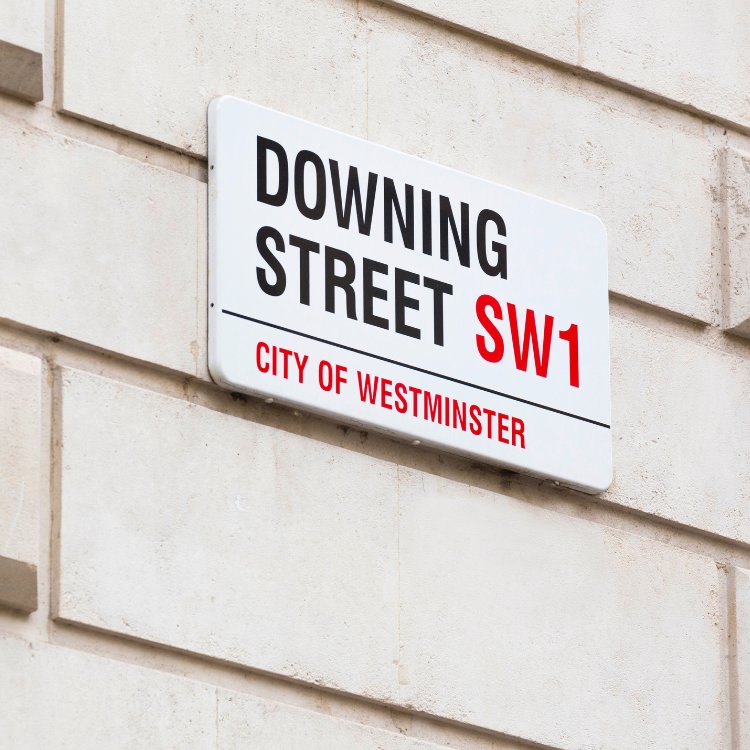What does the Chancellor's Autumn Statement mean for you?

The Chancellor’s Autumn Statement focused on the Government’s plans for economic growth. There were several important announcements that could affect your personal finances. Here’s a summary of the key points:
National Insurance cut
The headline grabbing announcement was the plan to reduce national insurance contributions (NICs) for employees from January and the self-employed from April 2024.
Employees currently pay 12% on earnings between £12,570 and £50,270 and 2% on any amount above this. From January the main rate will fall from 12% to 10% giving a saving of up to £754 per year.
Self-employed people pay 9% on profits between £12,570 and £50,270 and 2% on any amount above this. From April the main rate will reduce to 8% and Class 2 NICs of £3.45 per week will be abolished, giving a maximum total saving of £556 per year.
The change will put more money into the pockets of many. Those over state pension age (currently 66) don’t pay NICs so won’t benefit from the change, however they will see the state pension increase by 8.5% from April.
Employees can make further NIC (and Income tax) savings and boost their retirement income by giving up part of their salary in return for their employer making a pension contribution of the same amount, an arrangement known as ‘salary sacrifice’.
Income tax
There were no new announcements on Income tax. The freeze on the tax-free allowance, the point that the 40% rate becomes payable, and the threshold at which the Child Benefit tax charge kicks in remain frozen until 2028, which will affect a growing number of people as incomes increase.
The table below shows the impact of the freeze on allowances and thresholds, also known as ‘fiscal drag’.
| Last change | Current value | If increased by RPI* | |
| Tax-free personal allowance | April 2021 | £12,570 | £15,764 |
| 40% tax threshold | April 2021 | £50,270 | £63,042 |
| Child Benefit tax threshold | January 2013 | £50,000 | £77,123 |
| Tax-free savings allowance | April 2016 | £1,000 (Basic rate) £500 (Higher rate) |
£1,447 £724 |
*Retail Prices Index to 31/10/2023
One way to mitigate the impact for many will be to increase the amount they pay into their pension which reduces taxable income. Making full use of your ISA allowance can protect more of your savings and investment income from tax.
Inheritance tax
Although changes to inheritance tax, including a cut in the 40% rate, had been widely anticipated, there were no new announcements.
Of particular concern to farmers and landowners was the lack of clarity around whether Agricultural Property Relief will continue to apply to land taken out of agricultural production under Environmental Land Management Schemes.
Pensions
There was good news on the state pension, with the Triple Lock retained, resulting in an 8.5% increase from April 2024.
There was confirmation of the abolishment of the Lifetime Allowance, which restricts the amount you can accumulate in pensions without facing a tax charge when you take the money out, which was capped at £1,073,100.
For most people, the amount you’re able to take as a tax-free lump sum will remain at 25% of the fund, capped at £268,275 unless you’ve previously applied for Lifetime Allowance protection.
Pensions are one of the most tax-efficient ways to invest. In addition to tax relief on the amount you pay in, any growth is free of UK Income tax and Capital Gains tax. Anything left in your fund on your death is normally free of inheritance tax.
ISAs
ISA allowances remained unchanged at £20,000 for adult ISAs and £9,000 for a Junior ISA. From April 2024, you’ll be able to invest in multiple ISAs and transfer between them in the same tax year (currently you can only invest in one Stocks and Shares ISA or Cash ISA in the same tax year).
Tax breaks for companies
Investments by companies in qualifying plant and machinery will continue to qualify for 100% first year allowance. This is good news for those that run their businesses as limited companies as it gives tax relief on qualifying expenditure upfront. For every £1,000 invested, it will reduce the corporation tax bill by up to £250.
How did the markets react to the Statement?
Given the amount of noise before the Autumn Statement the details announced had minimal market impact. The Office of Budget Responsibility’s cuts to growth forecasts for 2024 and 2025 were a slight negative for Sterling, although many economists had considered their previous forecasts to be optimistic. Government bond yields were steady on the news. UK equity markets were also quiet, as mooted reforms to stimulate domestic investment were largely absent. Overall, there was little to set investors' pulses racing – good or bad.
The value of investments can fall and you may get back less than invested.
The tax treatment of pensions and ISAs depend on individual circumstances and may change in the future.
NFU Mutual Financial Advisers advise on NFU Mutual products and selected products from specialist providers. They'll explain the advice services we offer and the charges. Financial advice is provided by NFU Mutual Select Investments Limited.
The tax treatment of pensions and ISAs depend on individual circumstances and may change in the future.
NFU Mutual Financial Advisers advise on NFU Mutual products and selected products from specialist providers. They'll explain the advice services we offer and the charges. Financial advice is provided by NFU Mutual Select Investments Limited.

Looking for financial advice?
If you’re not sure how to put your financial plan in place an NFU Mutual Financial Adviser can help. An NFU Mutual Financial Adviser will recommend products that are right for you based upon your personal circumstances. You can book an appointment with an NFU Mutual Financial Adviser by either calling: 0800 622 323 or requesting a call back.